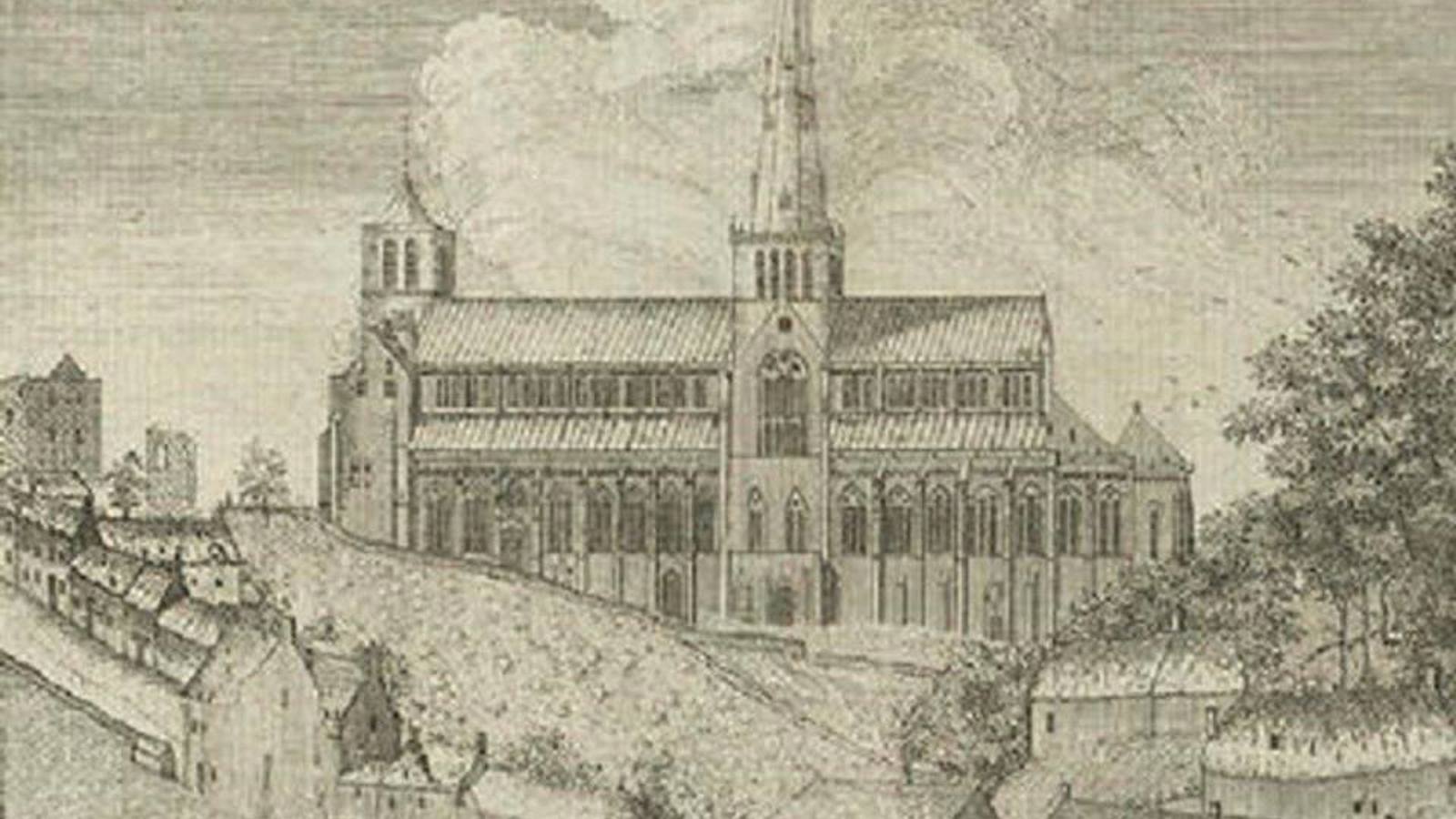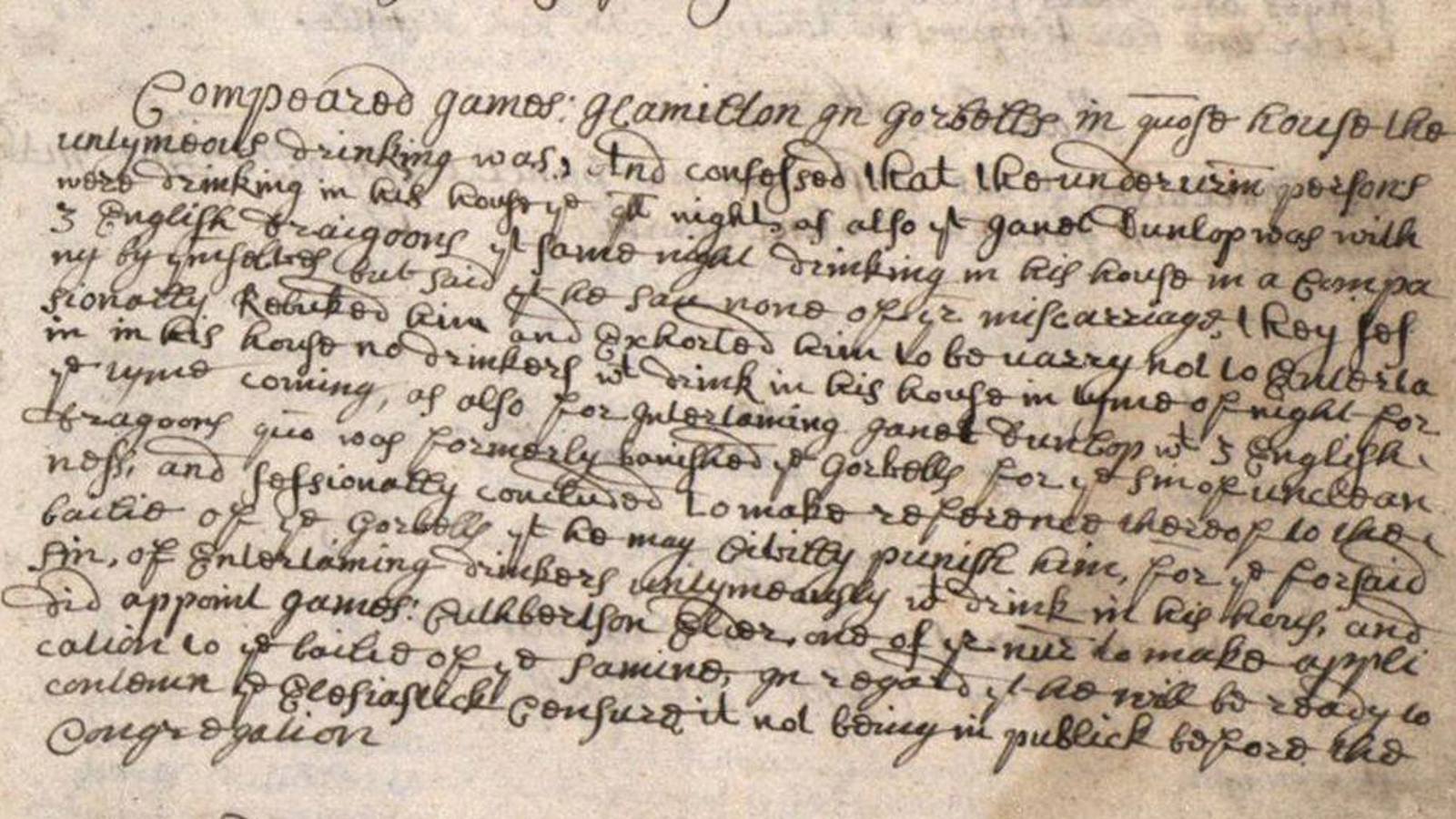Ask the Archivist - Church records

Our fourth topic was one of our richest resources: church records! The Q&A is below. You can also read a feature about these wonderful records in the Glasgow Times.
Q1: Do you have the records of the pre-Reformation church?
Not much survives from Glasgow’s medieval churches. We get a glimpse of the liturgy used in the Cathedral through liturgical fragments, one of which is our oldest document, dating c.1180. Other fragments show the music sung by choirs in the Cathedral and the Collegiate Church of St Mary and St Ann.
Q2: How do I find out the religion of my ancestors?
You should check civil registration marriage records from 1855 for family member(s) to identify the denomination and name of the officiating clergy. This would allow you to check pre-1855 Old Parish Registers and records of dissenting churches, and relevant parish records after 1855.
Q3: What denominations of church records do you hold?
We have the records of the Glasgow Presbytery of Church of Scotland and all its parishes, including former seceding churches. We have many Episcopalian records for Glasgow and the west of Scotland. These include many Irish migrants who were Church of Ireland. The congregation of St Andrews-by-the-Green, Glasgow’s oldest Episcopal Church, included many soldiers quartered in the nearby Glasgow Barracks. Other denominations include Congregational Union, Methodist, Baptist and Unitarian.
Q4: I am looking for records of baptisms in the late 1690s to early 1700s.
Baptisms were recorded in the Old Parish Registers (OPRs) of the Church of Scotland. These can be accessed online at https://bit.ly/3bAgNlS or in the Family History Centre in The Mitchell.
Q5: Why am I unable to find baptisms, marriages and burials in the OPRs?
The OPRs were often poorly kept and with frequents gaps. Some events may have been recorded in kirk session minutes. The family may have switched to a dissenting churches which you can check at ScotlandsPeople.
GCA holds many baptism, marriage and burial records, some pre-1855. In the GCA search room you can also access digital images for across Scotland, which highlight stray entries in minutes.
Q6: Did anything happen in Glasgow in the 1840s which might explain why I cannot trace a family member?
See Q5 above about the possible absence of records. In terms of a particular event, there was the Great Disruption in 1843 across Scotland, when over one third of the clergy left the established church to form the Free Church. The group was led by Rev. Thomas Chalmers, formerly minister of Tron Church and St John’s, Glasgow.
Q7: What can I discover about my ancestors from kirk session records?
You should hope your ancestor was a sinner and not a saint - the saints do not get a look in! From the 16th century, the sessions supervised the spiritual life of the parish. Their minutes record often very intimate details of the lives of parishioners who appeared for drunkenness and public disorder, gambling, adultery, slander or scandalous words, breach of Sabbath and the pages are full of cases of fornication with information about the act often described in very great detail...
Q8: What are your favourite entries from kirk sessions?
I love the 1594 entry from the High Kirk when Mungo Craig was warned not to play his bagpipes on a Sunday and then excommunicated on 28 May for repeating the offence. A favourite from Govan is Janet Dunlop who was charged with drinking and entertaining three English dragoons in the house of James Hamilton. Cathcart kirk session is rich in detail, including the case of a drinking session leading to a fist fight and then the use of exceedingly ‘scandalous’ words.

